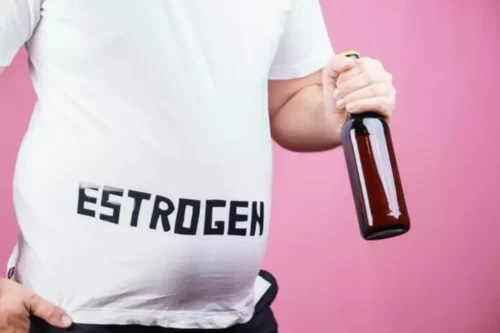Alcoholism & Anger Management: Mental Health & Addiction

«Keep in mind that any amount of drinking can influence emotions and behavior,» O’Brien says. Alcohol can fuel rage or aggressive behaviors even when a person isn’t intoxicated. Alcohol has a closer association alcoholism and anger with aggressive behavior than any other mind-altering substance, according to the World Health Organization (WHO). Violent behavior may occur in as much as 50% of people with alcohol use disorder (AUD).
- The relationship of state/trait anger with treatment outcome among alcohol users was assessed through percentage score, mean and standard deviation.
- Factors such as personality traits and comorbidities with other psychiatric disorders along with environmental stressors influence how one could engage in violent behaviors.
- And sadly, I’ve acted atrociously at times, especially when I was drunk on hard liquor and twitchy on cocaine.
- The present work provided the information on role of anger on treatment outcome among dependent and abstainers.
Alcohol, Aggression, and Violence: Psychiatric Comorbidities
- Chervyakov et al. (2002) reported that 4 in every 5 Russians convicted of murder were intoxicated with alcohol during the murderous act.
- Once these factors are organized into the I3 framework, their effects on aggression as well as their interactions with other relevant risk factors can be examined.
- There is a clear link between alcohol consumption and increased aggression levels.
- For numerous individuals, alcohol serves as a coping mechanism, offering temporary respite from underlying stressors, anxieties, or unresolved traumas.
Alcohol accentuates or promotes the mental state of the drinkers at the time of consumption, fueling negative emotions such as aggressive behavior or positive emotional outcomes such as gregariousness and warmth. Aggression is classified as impulsive, premeditated, and medically driven (Gollan et al., 2005). Unlike impulse-driven aggression, which is reflective of an agitated https://ecosoberhouse.com/article/essential-tremor-alcohol/ state of mind, premeditated aggression is a planned aggressive act (Martin et al., 2019). The journal Experimental and Clinical Psychopharmacology reports on studies showing that alcohol can increase aggression in both men and women, but more so in men. Alcohol impairs a person’s executive functioning, making it harder for them to think clearly and make rational decisions.

Alcohol’s Effects on Stress
Studies have shown that serotonin levels may begin decreasing within 30 minutes of that first drink (4). Plummeting serotonin levels hinder the brain’s ability to regulate anger and are linked to impulsive aggression (5). Some people may become more angry or aggressive when they drink, in part because of alcohol’s effects on brain chemistry. Research suggests several factors may be involved, including personality, genetics, social considerations, brain chemistry, and brain changes. “One of the acute effects alcohol can have on the brain is causing rage, anger, and aggression,” says Brent Metcalf, LCSW, a specialist in trauma treatment and clinical alcohol and drug counseling at Tri-Star Counseling. If you’ve ever noticed that you — or friends or family — have intense feelings or express extreme emotions or behavior while buzzed or drunk, you’re not imagining it.
REVIEW article
I have known people with terrible tempers and rage issues, my father being the first person to leave an impression on me. He was also a classic yeller who could shake the walls, and his behavior sometimes rose to truly distressing levels. Additionally, research into the effects of the COVID-19 pandemic on mental health suggests that increased anxiety may contribute to increased aggression. Many people with alcohol use disorder hesitate to get treatment because they don’t recognize that they have a problem.

Medical detox is typically considered the optimal method for allowing alcohol to safely process out of the body while under continual medical supervision. When people have difficulty controlling impulses, trouble regulating their emotions, or may present a danger to themselves and/or others, medical detox is required. Medical detox programs are often the first stage in a comprehensive addiction treatment program. These programs usually last 5-7 days on average and commonly use medications to manage difficult physical and emotional withdrawal symptoms.
This is particularly true for children who grow up in alcoholic homes, researchers report. Studies have found that cortisol interacts with the brain’s reward or pleasure systems, which can contribute to alcohol’s reinforcing effects—forcing people to consume greater amounts to achieve the same effect over time. Cortisol also can promote habit-based learning, increasing the risk of becoming a habitual drinker and increasing the risk of relapse. Situations arise in everyday life that cause sadness, anger, fear, anxiety, and excitement.


- A variety of disinhibiting cognitive processes support the “moral disengagement” that accompanies destructive human behavior, including alcohol intoxication [12, •13, ••14].
- I will assume that if you’ve “lost your temper a couple of times,” it hasn’t risen to the level of physical abuse or hasn’t landed you in jail at some point.
- Recognizing that each individual’s journey toward recovery is unique, individualized treatment plans are essential.
- People with alcohol addiction often feel out of control, leading to feelings of shame, frustration, or depression, which can manifest as anger.
